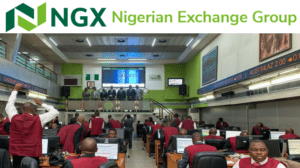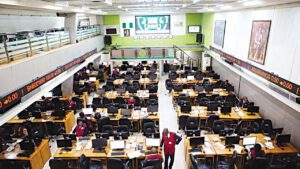Sterling Bank, 3 others report 4.1% increase in PBT to N215.64bn
By Kayode Tokede
A total of four banks, Sterling bank plc, Fidelity bank plc, Stanbic IBTC Plc and FBN Holdings Plc reported 4.1 per cent increase in Profit Before Tax (PBT) to N215.64billion in unaudited results account for full year ended December 31, 2020.
These four banks had reported N207.24billion PBT in audited full year ended December 31, 2019 results.
Our correspondent gathered from the unaudited results that most banks increased credit impairment in 2020, a key factor that contributed to weak PBT in 2020.
According to unaudited results on the Nigerian Stock Exchange (NSE), of the four banks, Fidelity bank with N30.2billion PBT in 2020, 0.48 per cent decline from N30.35billion reported in 2019, while Sterling Bank’s PBT grew by 18 per cent to N12.60 billion in 2020 compared to N10.67billion reported in 2019.
In addition, FBN Holdings reported N78.11billion PBT in 2020, 3.8 per cent increase compared to N75.29billion reported in 2019 while Stanbic IBTC’s PBT grew by 4.2 per cent to N94.72billion in 2020 from N90.93billion reported in 2019.
Analysts expressed that banks operating in the country significantly increased impairment charges on loans amid the Central Bank of Nigeria (CBN) directive to meet the 65 per cent Loan-to-Deposit ratio (LDR).
Our correspondent gathered that banks were lending to real sector after the federal government ease COVID-19 lockdown and at the same time aggressively going after obligor to recovered loans.
With the CBN’s LDR policy, InsideBusiness gathered that banks were making huge provision incase these loans go bad.
An economist and President, Association of Capital Markets Academics of Nigeria (ACMAN), Prof. Uche Uwaleke, stated that aggressive lending by banks forced hike in impairment charges, stressing that it might affect banks profitability by the end of 2020 financial year.
“Banks are expected to provide for 50 per cent if the interest payment is not coming within 180days. If it is for 90 days, 10 per cent and 360 days, 100 per cent.
“We can’t be talking about 360 because it is not up to one year. COVID-19 lockdown too will also contribute to loan impairment.
“The 65 per cent LDR of CBN means loans to customer went out heavily in nine months and banks are expected to make provision.
“The CBN confirmed it that loans to private sector increased. The LDR is working in two ways. One, it has increased credit to the private sector and it has contributed loan provisions banks are making.
“If we have hike in Non-Performing Loans, LDR may also be responsible.”




